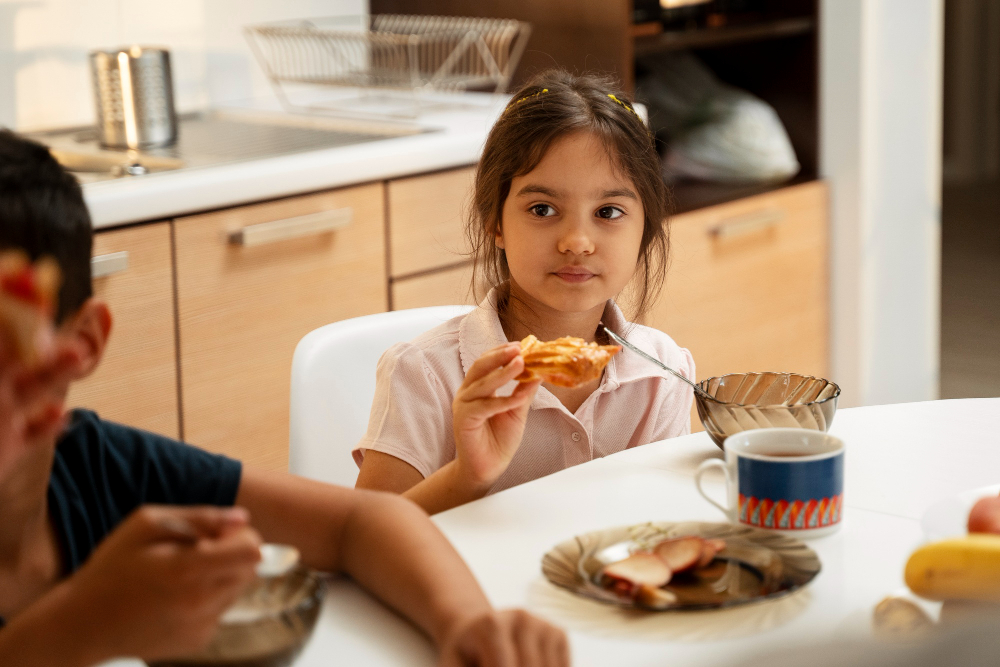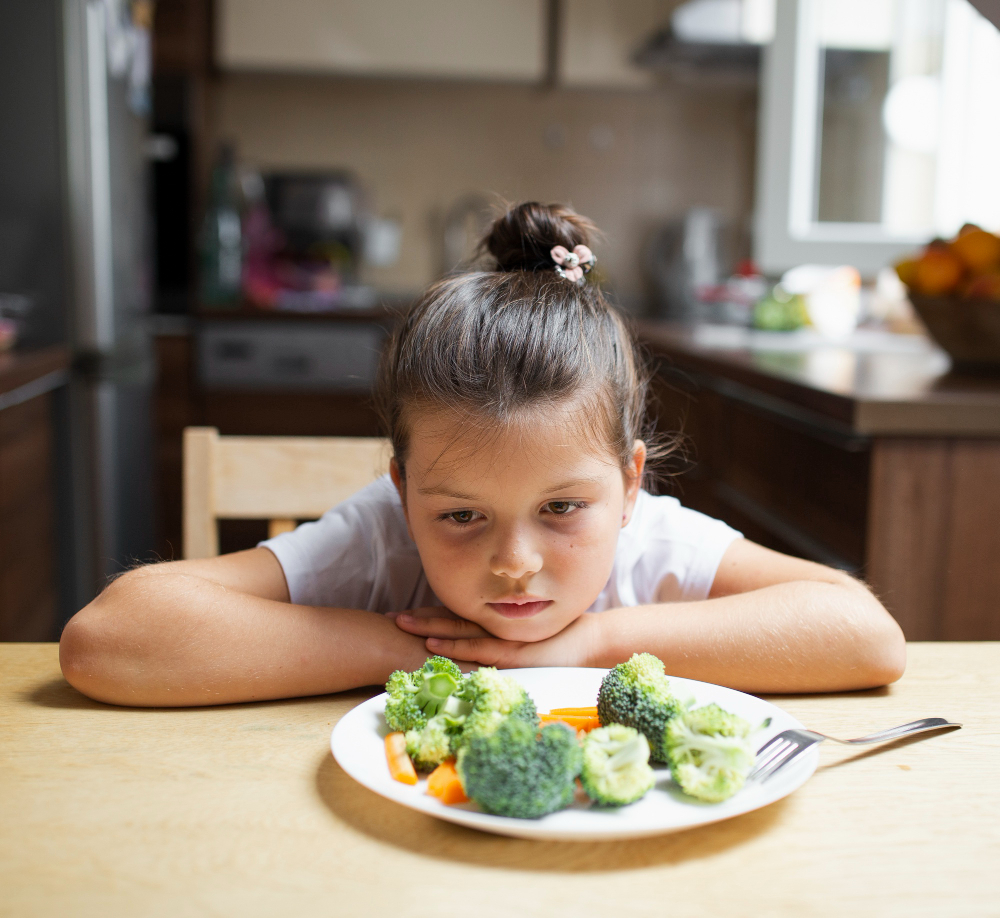
In today’s digital age, managing screen time is a growing challenge, especially regarding children’s nutritional health. We reached out to Dr Avneet Kaur MBBS, DCH, DNB, FAGE – Consultant Neonatology, Pediatrics, Apollo Cradle, Children’s Hospital, Motinagar to understand how screen time impacts kids eating habits and how you can manage it.
Dr Avneet Kaur said prolonged screen exposure can lead to mindless eating, leading to obesity and other health issues. This distraction often results in overeating, with kids consuming larger portions or more frequent snacks without recognizing when they’re full.
Several studies show that children who eat while watching screens tend to consume more calories and less nutritious foods than those who eat without distractions. Additionally, the timing of screen use can further complicate dietary habits.
Children who use screens during mealtimes may skip meals or opt for less balanced options. Mindless snacking while watching TV or playing games can disrupt regular meal patterns and contribute to poor eating habits.
Dr Avneet Kaur emphasised that excessive screen time also decreases physical activity, which is essential for a healthy lifestyle. The sedentary nature of screen use can lead to weight gain and reinforce unhealthy eating patterns.

Here are the effective strategies to reduce screen time:
Follow guidelines from the American Academy of Pediatrics, which recommend no more than 1 to 2 hours of recreational screen time per day for children over 2 years old.
Designate areas such as the dining room and bedrooms as screen-free to encourage family interaction and focus during mealtimes.
Don't Miss: To Boost Your Health Stop Doing These Five Things On An Empty Stomach
Limit your own screen time to set a positive example for your child.
Provide engaging alternatives like outdoor play, arts and crafts, or reading to help your child explore interests beyond screens.
Engage with your child in screen activities to monitor content and make screen time interactive and educational.

Here’s how you can incorporate healthy eating habits in kids:
Ensure meals are nutritionally balanced (benefits of eating balanced diet) with a variety of fruits, vegetables, whole grains, lean proteins, and healthy fats.
Get children involved in meal planning and preparation to increase their interest in healthy foods.

Don't Miss: Six Things You Shouldn't Be Doing After Having Your Meal
Keep nutritious snacks like fresh fruit, yoghurt, and vegetables available while limiting sugary or processed options.
Teach children to eat slowly, savour their food, and listen to their hunger cues.

Create a pleasant eating environment by sitting down together and minimising distractions like TV or phones.
By implementing these strategies, parents can help their children develop healthier screen habits and eating practices, fostering better overall well-being.
Image Courtsey: Freepik
Also watch this video
Herzindagi video
Our aim is to provide accurate, safe and expert verified information through our articles and social media handles. The remedies, advice and tips mentioned here are for general information only. Please consult your expert before trying any kind of health, beauty, life hacks or astrology related tips. For any feedback or complaint, contact us at [email protected].